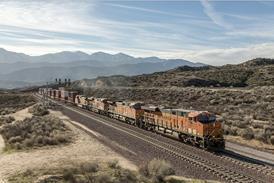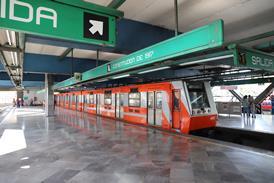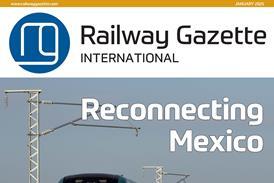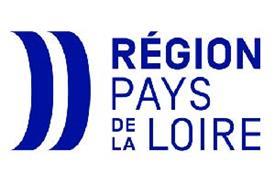INTRO: CB Transportes is using its business acumen to turn round run-down railways in Latin America. The company is operating successfully in Chile and Bolivia and is seeking more opportunities to expand
BYLINE: Gonzalo Grebe N
Finance Manager, CB Transportes SA
OVER THE last decade commerce within the southern cone of Latin America - comprising Argentina, Bolivia, Brazil, Chile, Paraguay and Uruguay - has grown many times faster than elsewhere in the region. This stems from rapidly developing economies and free trade agreements, and the hope is that growth will continue at a similar pace in the future.
Transport development has not kept pace with the rate of economic growth, and in many cases has remained under-developed. In an attempt to ensure that transport services can catch up, governments in the region have gradually been transferring operations to the private sector by concessioning or tendering, in most cases successfully and with a significant number of competing operators involved in the bidding process.
CB Transportes was set up in 1995 to take an active part in the restructuring of the transport industry then already under way in Latin America. Today the company’s activities are focused mainly on the operation of freight railways. Using this as a platform for other business development, CB Transportes is also involved in equipment leasing, logistics, intermodal, storage and port services. By making a series of strategic investments, the group’s aim is to create a portfolio of highly efficient companies that can take advantage of the economies of scale in owning and managing railway businesses.
With these objectives in mind, the company has obtained a number of railway concessions: the Ferrocarril del Pacífico SA in Chile in November 1994; the Empresa Ferroviaria Andina SA and Empresa Ferroviaria Oriental SA in Bolivia in December 1995; the Chilean section of the Arica - La Paz Railway in August 1997; and an export centre in Arica in April 1998. The company’s involvement in the last two businesses came about through the Oriental concession.
CB Transportes was set up by a Chilean businessman, Manuel Cruzat Infante, who had founded a number of businesses in Chile and Latin America that were involved in a wide range of activities: mining, industrial, infrastructure, financial, health services and insurance. At the end of 1998 International Finance Corporation took a 25·45% shareholding in the company. A 10% holding was purchased by San Pablo Bay Railway Chile SA and Latin Rail Investors SA, both closely associated with Lawrence McCaffery Jr of the USA who has vast experience of the rail business throughout North America. The arrival of these new shareholders has enabled CB Transportes to strengthen its financial position so as to undertake major investment projects in 1999 and beyond.
In the medium term, CB Transportes hopes to obtain a stock exchange listing and so obtain fresh resources which will allow it to implement further growth plans. The ultimate objective is to become the most important transport business in South America.
Potential for Fepasa
Fepasa is a freight railway with a 20-year concession to operate in central and southern Chile; the 3000 route-km of 1676mm and 1000mm gauge tracks are owned by Chilean State Railways. At the moment it has a market share of only 3%, which gives some idea of the potential for growth and development. In 1998 the company carried 4·2 million tonnes representing 920 million tonne-km, which was 12% more than in the previous year; this produced a growth in revenue of 9·4%.
During 1998 Fepasa set up a logistics division to offer intermodal services, storage and distribution to national and international customers requiring containerised transport. This produced 2% of the company’s business, but we are hoping this proportion will in due course grow to 30%. Together with important contracts won last year for hauling copper, copper concentrates and cement, plus those likely to be clinched this year for moving sulphuric acid and refuse from the Santiago area, this will ensure the expansion of Fepasa’s business and turn the company into the largest carrier in Chile. It is putting forward proposals for integrated transport as the answer to road traffic congestion in the metropolitan area, and this will help to reduce the environmental and safety cost.
Bolivian adventure
Empresa Ferroviaria Oriental (FCO) runs a 1244 route-km network of metre gauge freight and passenger services in Bolivia with links to Ferrocarril del Novoeste in Brazil and to Argentina’s Belgrano Railway. Add to these access to the River Paraguay, and the company has connections to the Atlantic ports of Santos, Paranagu




















